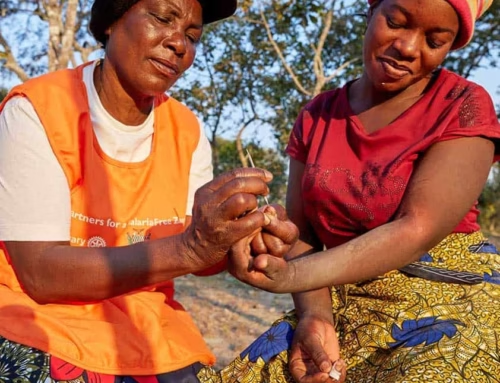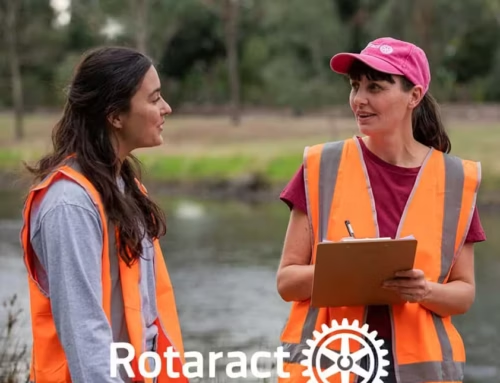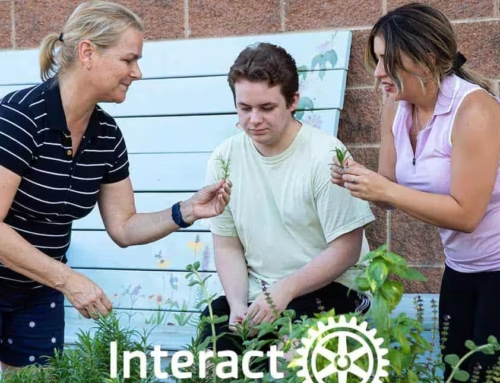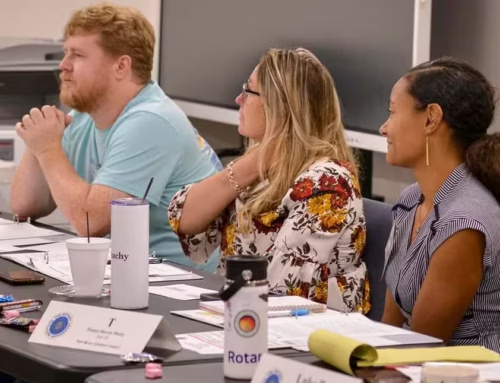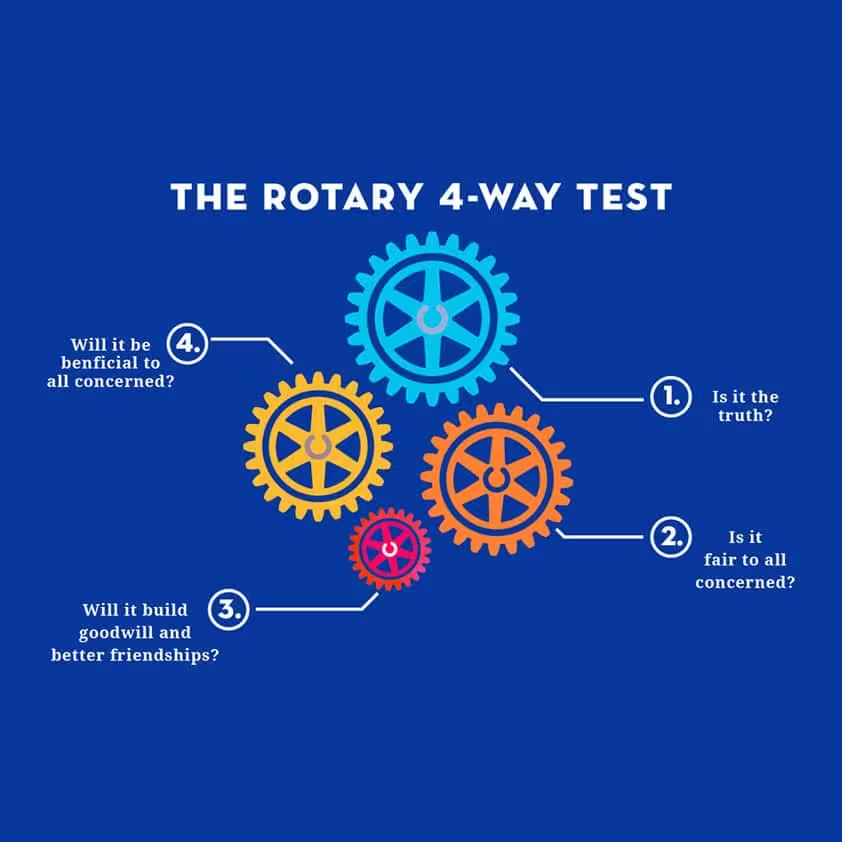
The History of Rotary’s Four-Way Test: A Guiding Ethical Framework
The Four-Way Test has been a fundamental ethical guideline cornerstone of Rotary International since the 1940s. Used by Rotarians worldwide, it provides a simple but powerful set of principles to guide both personal and professional behavior. The Four-Way Test encourages individuals to ask four critical questions about what they think, say, and do.
These questions are:
Rotarians apply these principles as a timeless code of ethics to their business dealings, community service, and daily interactions. But where did the Four-Way Test originate, and how did it become vital to Rotary’s identity? Let’s explore its history and significance.
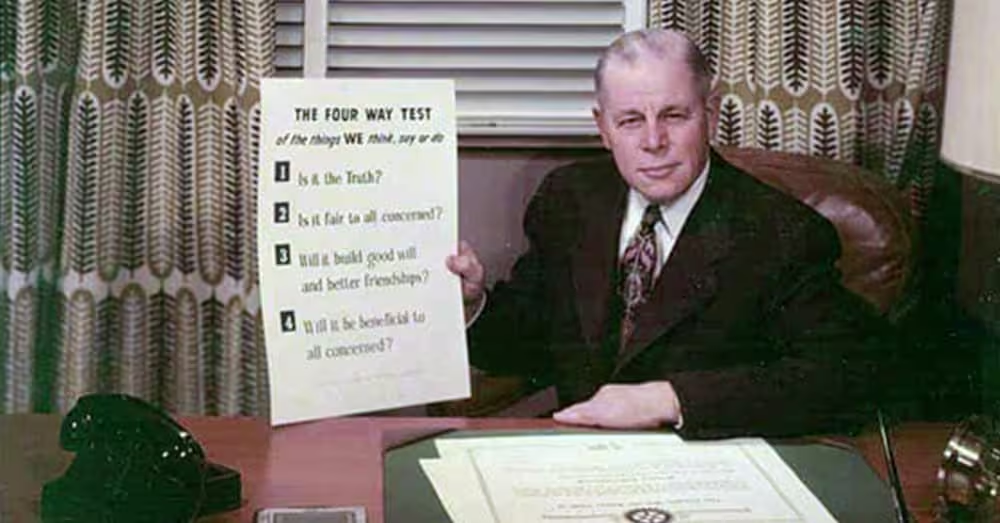
The Rotary Four-Way Test was created by Herbert J. Taylor.
Origins of the Four-Way Test
The Four-Way Test was created in 1932 by Herbert J. Taylor, a businessman facing a challenging situation. At the time, Taylor was working to save the Club Aluminum Products Company, struggling financially during the Great Depression. He believed a solid ethical foundation could help turn the company around and improve its reputation. To that end, he crafted the Four-Way Test as a set of moral guidelines that the company’s employees could use in their business decisions.
Taylor’s idea was simple: by focusing on honesty, fairness, and mutual benefit, the company could build trust with customers, suppliers, and employees, ultimately fostering a more positive and productive business environment. His strategy worked. Not only did the company survive, but it thrived under these new ethical standards.
Adoption by Rotary International
Herbert J. Taylor was a member of Rotary at the time, and in 1940, he was asked to serve as the president of Rotary International. Taylor recognized the potential of the Four-Way Test to inspire ethical behavior on a broader scale and introduced it to Rotary. The Four-Way Test was officially adopted by Rotary International in 1943 as a guiding principle for both Rotarians and the organization as a whole.
Since its adoption, the Four-Way Test has become crucial to Rotary’s identity. It is recited at Rotary meetings worldwide and serves as a moral compass for Rotarians in their personal lives and community service projects. The test transcends cultural and national boundaries, offering a universal framework for ethical decision-making.
The Impact of the Four-Way Test
The Four-Way Test has profoundly influenced the way Rotarians approach their work, interactions, and service efforts. Its simple yet powerful message encourages individuals to think critically about the consequences of their actions, ensuring that they are truthful, fair, and considerate of others.
In addition to guiding individual behavior, the Four-Way Test has become a tool for building stronger communities and fostering goodwill. Rotary clubs use the test as a foundation for many initiatives, from community development projects to international humanitarian efforts. By ensuring that all actions are aligned with these ethical principles, Rotary has built trust and created lasting positive change.
The Four-Way Test is also used outside of Rotary in schools, businesses, and other organizations. Many companies and educational institutions have adopted it as part of their own codes of ethics, helping to spread Rotary’s values of honesty, fairness, and mutual benefit far beyond the Rotary network.
Why the Four-Way Test Still Matters Today
The Four-Way Test remains as relevant today as it was when it was first introduced. In an increasingly complex and interconnected world, having a clear and concise ethical framework can help individuals and organizations navigate challenges with integrity and respect for others.
For Rotarians, the Four-Way Test is more than just a set of questions—it’s a way of life. It reflects Rotary’s commitment to positively impacting the world through ethical leadership and service. By adhering to these timeless principles, Rotarians continue to build goodwill, strengthen relationships, and contribute to the well-being of communities worldwide.
A testament to the power of ethics in creating meaningful change
What started as a simple business strategy during the Great Depression has become a global ethical framework that guides Rotarians and others personally and professionally. Its focus on truth, fairness, goodwill, and mutual benefit inspires ethical behavior and strengthens communities worldwide.
Rotary International’s adoption of the Four-Way Test has ensured that these values remain central to the organization’s mission of “Service Above Self,” providing a clear path for Rotarians to follow as they work to create a better world.




